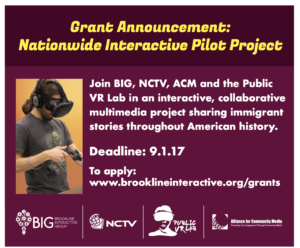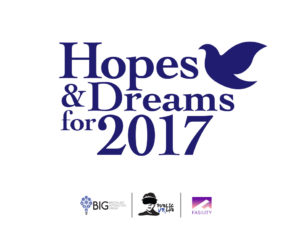What is Community VR? (the short version, for now)
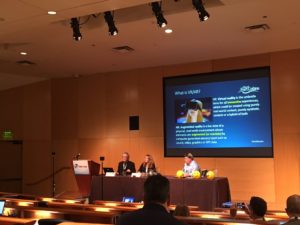
Co-founder and Director of the Public VR Lab, Kathy Bisbee presenting on Community VR at NATOA 2017
I’m in the process of writing a longer article than this one about a new movement I hope you’ll join me to seed, fund, cultivate and grow. It’s called the Community VR movement. Like its sister movement, Community Media, it’s a movement where everyone can participate, create, learn, share and express. Where everyone’s stories matter, everyone is included, and everyone’s voices can be heard. It shares a goal of providing equitable access to media making tools, training, and in inspiring the next generation of journalists, filmmakers, creators and storytellers. The only thing it doesn’t have in common with community media is that it’s not yet ubiquitous or woven into our social, cultural, economic and public fabric. Yet.
The Public VR Lab is building an inclusive Community VR movement that will facilitate public dialogue; provide professional training; empower community knowledge and creation of 360, virtual and augmented content; provide access to tools, headsets, arcades, toolkits, and professional expertise; and generate locally-focused, broadly impactful, Next Realities experiences in the public interest. Here’s a recent highlight reel about our work at the Lab.
At the NATOA conference (the National Association of Telecommunications Officers and Advisors …) in Seattle this week, I was met with surprisingly-engaged enthusiasm from government employees who tried our HTC VIVE after my presentation and wanted to figure out how they could use VR and 360 in their communities. Colleagues began the process of signing up to become a Public VR Lab affiliate; others wanted to purchase our Public VR Lab Toolkits (VR demo and content creator toolkits); others still asked about our curriculum, equipment, staffing; and NATOA attendees from Alaska to Massachusetts inquired about applying to our national collaborative project called “Immigration Stories in Full Frame: Reimagining Migration.”
We have to be mindful not to make early mistakes as this new medium grows from infancy into its preteen years, assuring that equipment/headsets, powerful computers, and training programs are accessible to all, no matter your geography, income, gender, ethnicity, etc. We need to educate creators on the potentially troubling “virtual literacy” issues and ethics concerns inherent to this visceral medium; to the dangers of limiting our characters in VR to our own/current biases and roles; and to consider policies that hold VR/AR marketing, propaganda, access to the new currencies of the metaverse, and the use of public spaces in careful check with public interest needs.
A longer article will be published later this month on the implications of this work, my thoughts on the immediate challenges and opportunities, the projects we’ve set out to grow the movement in the next year, and ways you can help to support Community VR. Stay tuned!
Brookline Interactive Group (BIG) and Northampton Community Television (NCTV) launched this VR accessibility and literacy initiative at their community media centers in Northampton and Brookline, MA, beginning in April of 2016, and have expanded the Lab to grow a national network of Lab affiliates to work collaboratively to build a movement for Community VR. Please join us!
Become an affiliate of the Public VR Lab at your library, community media or arts organization, government agency, or newsroom, and be part of building the movement for Community VR.

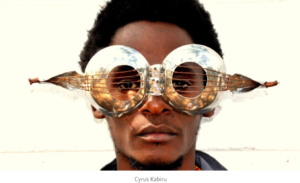 The Co-founder and Director of the
The Co-founder and Director of the 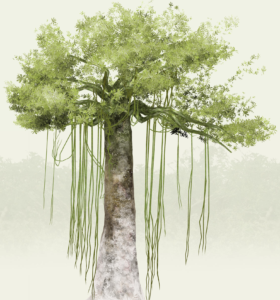
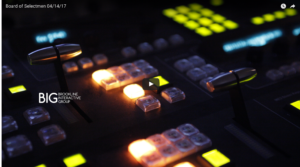 Brookline Interactive Group, one of the community media arts centers houses the Public VR Lab’s work in the Boston area, is hiring an Assistant Director, a new position.
Brookline Interactive Group, one of the community media arts centers houses the Public VR Lab’s work in the Boston area, is hiring an Assistant Director, a new position.